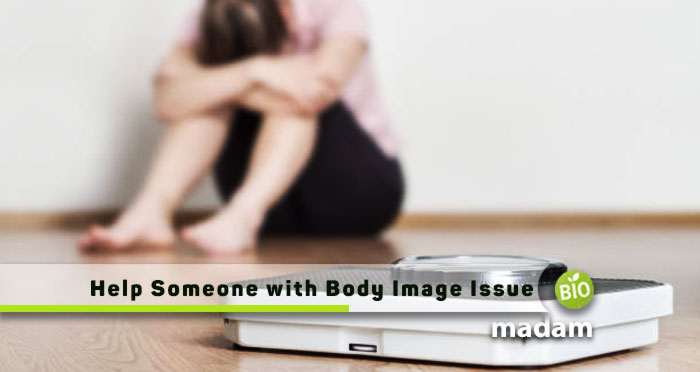Considering the influence of social media on your lives, it is natural to feel insecure about some aspects of your body. However, some people do not feel happy about how they do not look at all. They try to isolate, avoid going out and change their appearance. It could include wearing particular clothes, opting for surgery, or eating less or more that might further lead to Binge Eating Disorder or Bulimia Nervosa. Sometimes people may cause more distress by pushing them to accept their flaws. Let’s tell you how you can help someone with body image issues without pressuring them.
What is Body Image?
Body image refers to how you see your body. It includes features like eyes, face, lips, nose, weight, height, etc. However, most commonly it is associated with weight issues. People with a positive body image accept how they look and feel confident about their bodies. On the other hand, people with body image issues do not feel happy about their appearance. The person’s perception of their body might not always be right. While no one is perfect, others might not care about features that they think people judge them for. A person with body image issues may:
- Check their weight frequently to make sure they maintain their ideal weight.
- Talk about how bad they look and how pretty other people are.
- Try to cover the flaws (as they think) with makeup.
- Wear baggy clothes or heels if they think they are overweight or short-heightened.
- Go for crash diets to lose weight.
- Isolate themselves and avoid going out.
Helping Someone with Body Image Issues
If you have a family member or friend with a negative body image, it is important to help them in a way they do not find pitiful. Sometimes people with body image do not want others to make them feel better. They believe that the other person is helping because they are unconfident or not pretty. This thought process can aggravate the negativity regarding their appearance. Here are a few things you can keep in mind when helping someone with body image issues:
Understand the Triggers
One of the most important aspects when trying to help someone is to understand where they exactly need help. Different people may have varying triggers regarding the subject. Some people feel that they are too tall compared to others, while others dislike their short height. Similarly, being underweight, overweight, or not having perfect features may also cause distress. It is essential to realize the triggers before you try to help.

Avoid Triggers
Now the next step is to avoid or distract them from triggers. When they talk to you about how ugly their nose is, softly tell them about their beautiful eyes. Though, it is not suitable to immediately come up with good words as an alternative. Let them take their time and gradually talk to them about the good aspects. Letting them talk about it is a good way to let it out. It is also suitable to avoid mentioning trigger phrases yourself and also inform other family members about them. Some of the common trigger phrases include
- “You’re so skinny; you should eat more.”
- “You look unhealthy/sick.”
- “Looks like you have lost more weight.”
- “You look short in that dress. Maybe wear heels.”
- “You look great; what diet/exercise are you on?”
Listen to them
Understanding the person’s triggers and avoiding them should not mean restricting them from talking about their body. People with body image issues feel better when they have someone who listens to them. Make sure not to talk over them when they share how they feel. Make them feel listened to and slowly mention the aspects of their body you think they also somehow admire. It will give them a confidence boost. Their negative thoughts about their body image might not go away immediately. Yet, it will help.
Understand their Boundaries
While listening to them is important, it is also crucial to understand their boundaries. We understand that this is confusing. But there is a thin line between listening and being supportive and making them uncomfortable. If your friend or family member is not comfortable talking about any particular body feature, avoid it. Focus on others that they talk about.
Don’t Give Ultimatums

Giving ultimatums is undoubtedly one of the most common methods of pushing your friends and family to achieve something. Yet, it is not the right choice for people with body image issues. They will think that you believe they do not put enough effort into avoiding these issues. Pressurizing someone already under pressure is not the best approach.
Unfollow Accounts on Social Media
While social media is an excellent platform to interact with others, it sometimes makes you feel insecure. All the models with perfect bodies look divine, and we feel where we lack. You can help people with body image issues by suggesting they unfollow such accounts on social media. Explain to them that social media is a place for marketing and that humans are not born perfect. It is better to follow people who look like you and are confident in their shape.
Affirmations
Affirmations help build confidence and have a positive impact on psychology. You may practice daily affirmations with your friend and add those which encourage self-love. Practice sentences like “I am confident,” “I am happy,” I am beautiful,” etc.
As Conrad Hall says, “There is a kind of beauty in imperfection.”

Meet me; I am Paulina Zaniewska, who’s more hooked on providing the best health blog. I’ve always been so determined to compete as a nutritionist, and here I am, done with a Master’s in food technology. My brilliant performance throughout encouraged me to help people.

